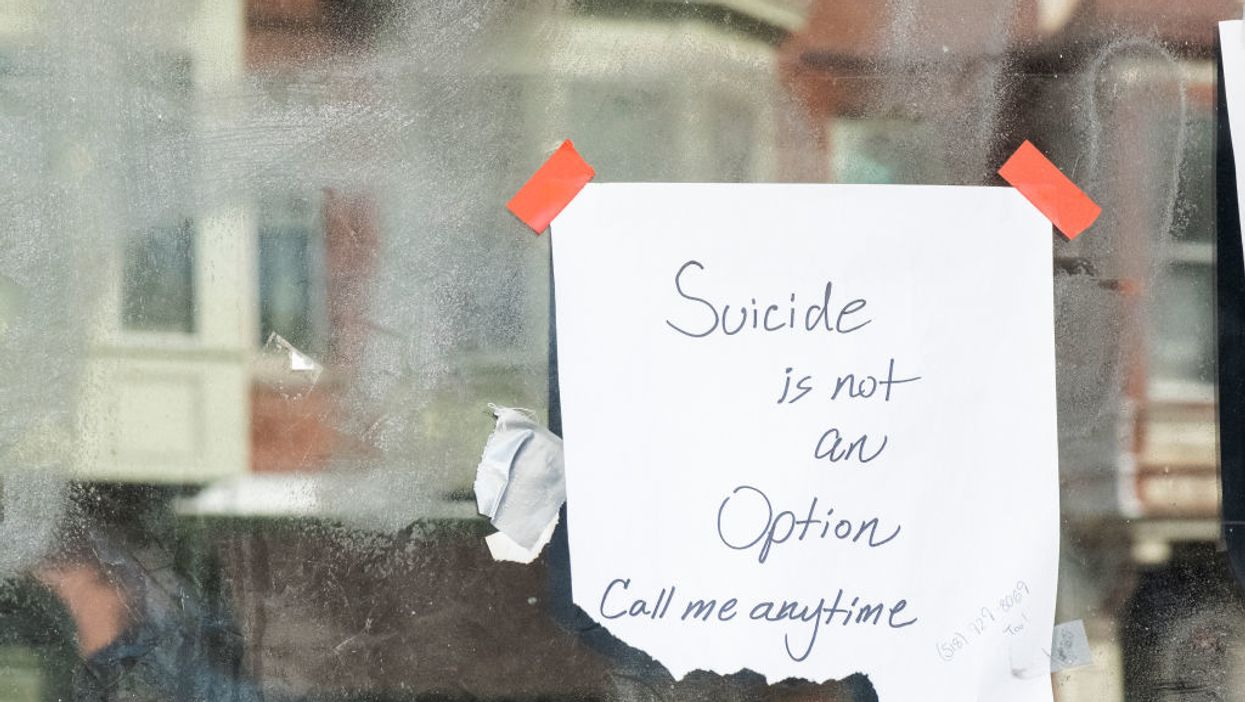
Ira L. Black/Corbis via Getty Images

The COVID-19 pandemic is taking a toll on people in a number of ways
The COVID-19 pandemic has not only taken a toll on the physical well-being of many Americans, but also the mental health, according to a new study. During the coronavirus pandemic, the rate of depression in U.S. adults has more than tripled, a study published in JAMA Network Open found.
There was psychological trauma caused by the COVID-19 lockdowns, social isolation, employment worries, financial concerns, and an unpredictable future. A recent study, led by researchers from Boston University, set out to discover the emotional damage that people encountered during the coronavirus pandemic.
Researchers examined data from a survey of 1,441 U.S. adults conducted from March 31 to April 13. By mid-April, there were over 600,000 confirmed COVID-19 cases in the United States, and there were nearly 28,000 coronavirus deaths. Stay-at-home orders were issued in most states at the time, and a record 20.5 million jobs were lost in April.
A pre-pandemic poll of 5,065 respondents in the National Health and Nutrition Examination Survey, conducted from 2017 to 2018, found that 8.5% of Americans showed depression symptoms. During the coronavirus pandemic, that figure skyrocketed to 27.8% of people who said they were experiencing depression symptoms.
Both surveys are based on the Patient Health Questionnaire-9, "the most commonly used self-administered depression screening tool," according to The Center for Infectious Disease Research and Policy at the University of Minnesota.
Women were most likely to have depression symptoms during the COVID-19 pandemic, at 33.3%, compared to 21.9% of men. Individuals who were widowed, divorced, or separated had 2.1-fold increased odds of depression symptoms compared to those who were married.
People with a household income of $19,999 or less had 2.4-fold increased odds of depression symptoms. Individuals with household savings less than $5,000 had 1.5-fold increased odds of depression symptoms, according to the paper.
"In 2020, 38.8% of U.S. adults ages 18 to 39 had at least one symptom of depression, up from 9% in the earlier years," according to the Los Angeles Times. "That increase was mirrored among Americans in their 40s and 50s (jumping from 8.5% to 26.8%) and those 60 and above (rising from 7.9% to 14.9%)."
Signs of depression include feeling down or hopeless, loss of interest in things that generally bring joy, lethargy, lack of concentration, or thinking about self-harm, according to Time.
"As an event that can cause physical, emotional, and psychological harm, the COVID-19 pandemic can itself be considered a traumatic event," the authors wrote. "In addition, the policies created to prevent its spread introduced new life stressors and disrupted daily living for most people in the U.S.
"We imagine that as the virus spreads and more cases of COVID-19 are confirmed, so too may mental illness increase among those with COVID-19 and those around them," the authors stated. "This burden is being borne by economically and socially marginalized groups, suggesting that individuals with low income and with fewer resources may benefit from particular policy attention in coming months."
"Post–COVID-19 plans should account for the probable increase in mental illness to come, particularly among at-risk populations," the authors concluded.
"Depression in the general population after prior large scale traumatic events has been observed to, at most, double," said senior study author Dr. Sandro Galea, Dean and Robert A. Knox professor at the Boston University School of Public Health. Galea cited the September 11 terrorist attacks, the Ebola outbreak, and civil unrest in Hong Kong.
"These findings serve to alert our attention to yet another impending public health crisis as a result of this pandemic — the increase in cases of major depression," Dr. Ruth Shim, an expert on cultural psychology at UC Davis, wrote in the commentary attached to the study.